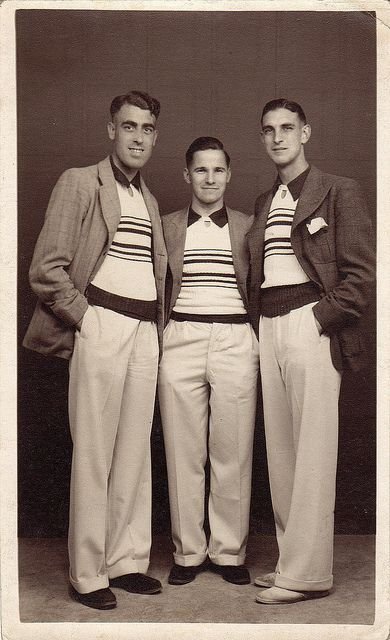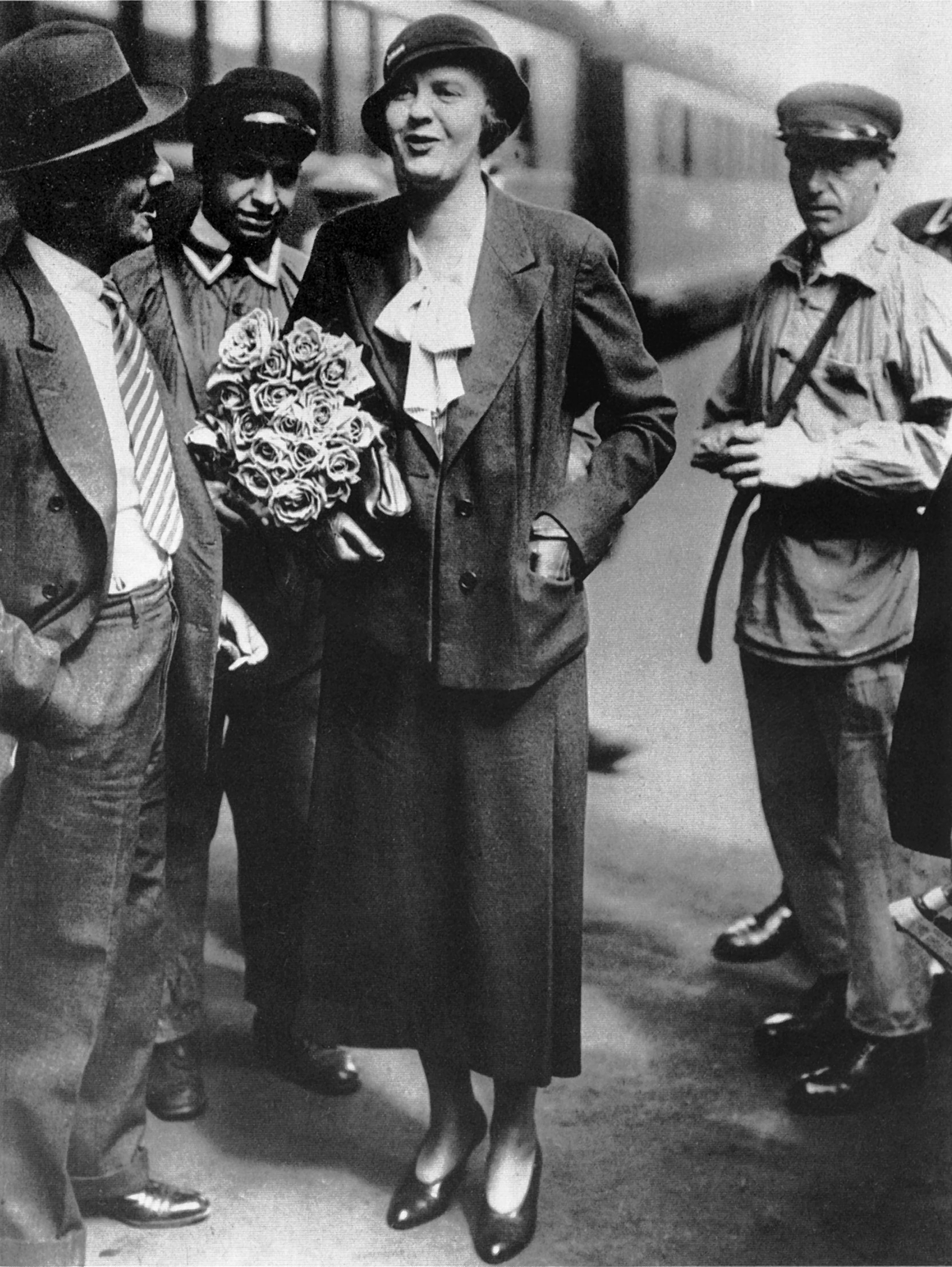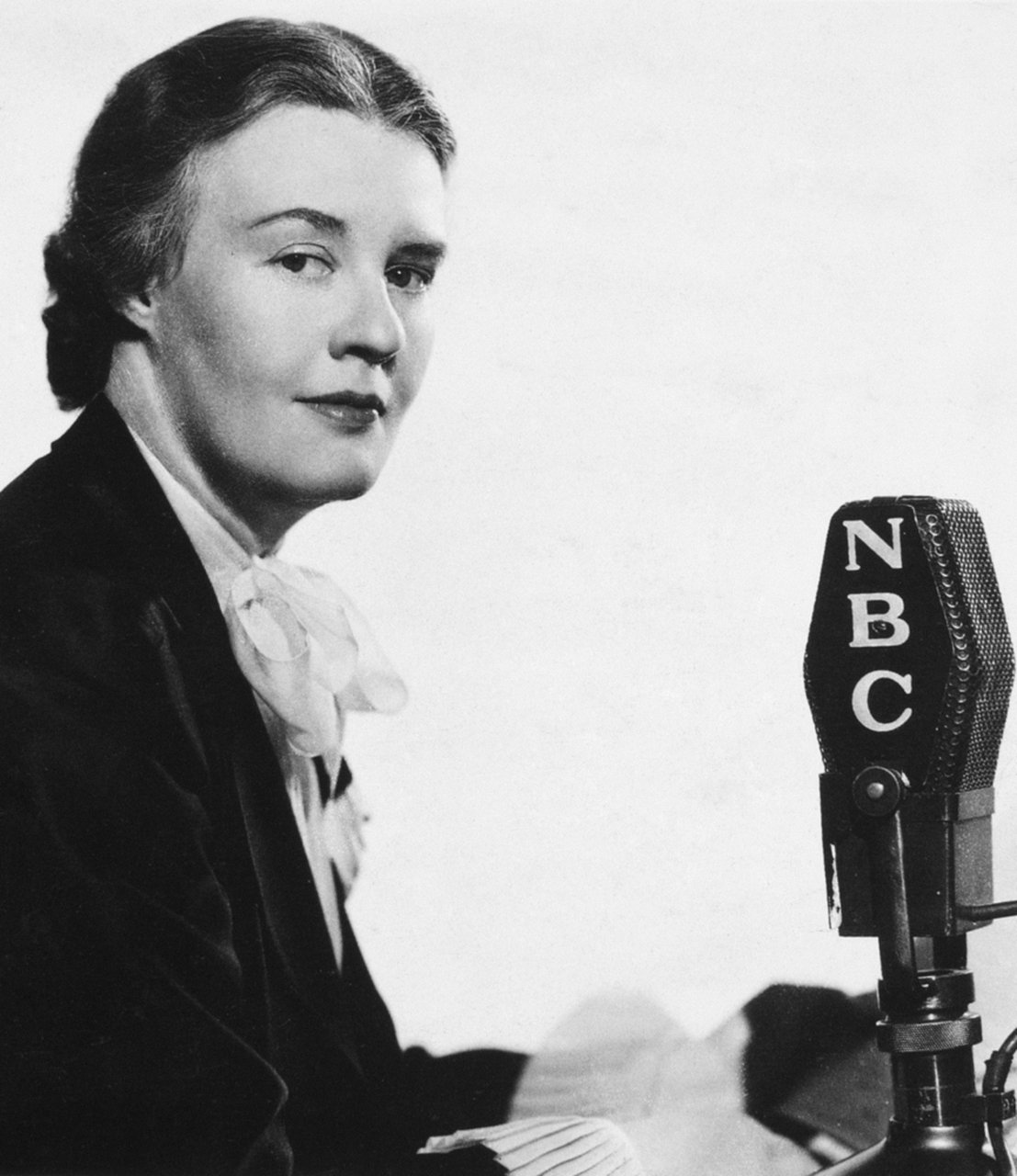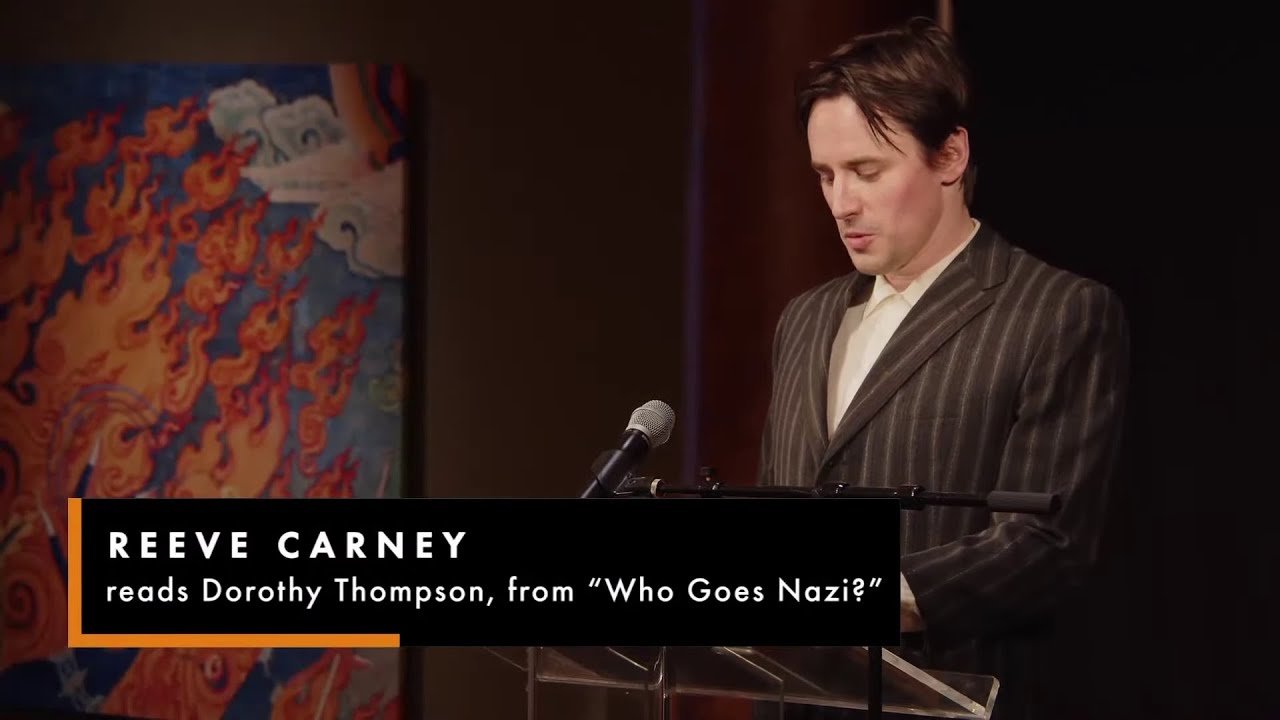WHO WOULD GO NAZI?
MANHATTAN, SPRING 1941 — All the people at this party seem true blue American. They are well bred, well fed, well read, not the kind of rabble drawn to dictatorship. But as “a somewhat macabre parlor game,” the tall woman in one corner wonders “who would go Nazi? By now, I think I know.”
That tall man by the fireplace, whiskey in hand. Call him Mr. A. An editor, “a free man. I doubt whether ever in his life he has done anything he did not want to do or anything that was against his code. Nazism wouldn’t fit in with his standards.”
But Mr. B, nearby? A banker, a social climber. Handsome, married for money. “His code is not his own; it is that of his class—no worse, no better. He fits easily into whatever pattern is successful. That is his sole measure of value—success. Nazism as a minority movement would not attract him. As a movement likely to attain power, it would.”
Dorothy Thompson knew a Nazi when she saw one. She met Hitler, and to her lasting regret, underestimated him. She would never make that mistake again. Now if she could just make America listen.
From a rebellious girlhood in upstate New York, Thompson became “the first lady of American journalism.” As other female journalists toiled in the “pink ghetto” of Women’s Pages, Thompson lived on front pages. After freelancing for New York dailies, she moved to Europe in 1920, and soon sent back stories no mere male reporter could match.
Profiles of an Irish hunger striker and a Hungarian empress. Meeting Freud in Vienna, hobnobbing with Thomas Mann and Bertolt Brecht. But the coup of her career came as a Bureau Chief in Berlin. There, in 1931, a rising politician agreed to a rare interview.
“When I walked into Adolph Hitler’s salon in the Kaiserhof hotel,” Thompson wrote, “I was convinced that I was meeting the future dictator of Germany. In something like fifty seconds I was quite sure that I was not.”
Hitler, she wrote, “is inconsequent and voluble, ill-poised, insecure. He is the very prototype of the Little Man.” Reading I Saw Hitler, Americans were soothed by Thompson’s assessment. Nazis, however, were furious. When Hitler came to power, Dorothy Thompson was the first journalist booted out of the Reich. An entourage escorted her to the train, sending her off with flowers and champagne. She had the expulsion order framed.
Back in America, regretting her mistake, Thompson saw potential Nazis in many walks of life. The bullying banker. The dictatorial husband. Even FDR. New Deal programs, she feared, made workers “excellent shock troops for a radical-Fascist movement.”
Thompson’s warnings inspired her husband, Sinclair Lewis, to write a novel about a smooth talking, folksy dictator who is elected president. It Can’t Happen Here sold 320,000 copies and toured the country as a play. America was waking up. (Lewis’ novel is currently #16 on Amazon’s Classic American Literature list.)
In 1936, the New York Herald-Tribune wanted “a woman’s voice” to parallel political columns by Walter Lippmann. Thompson’s column, “On the Record,” gave them much more. Her thrice-weekly thoughts on politics, war, and international affairs soon ran in 170 newspapers, attracting ten million readers. When NBC gave her a weekly radio show, she added another five million fans.
Profiling Thompson, TIME noted, “she thinks, talks and sleeps world problems and scares strange men half to death.” But she was also, TIME said, America’s most influential woman, the equal of Eleanor Roosevelt.
So in August 1941, with Hitler commanding most of Europe, Thompson’s “macabre parlor game,” struck a nerve. “Who Goes Nazi?” published in Harper’s, challenged both FDR and Lindbergh’s isolationist “America First” movement. Dorothy Thompson, as one biography called her, was the “American Cassandra.” In mythology, no one listened to the Trojan priestess Cassandra warning of Greeks bearing gifts. Would anyone listen to Thompson?
Back at the party how about Mr. B? Probably would go Nazi. Mr. C, self-made Wall Street adviser consumed by “an ambition, bitter and burning” — definitely. Mr. D? A born Nazi. “Mr. G will never be a Nazi, because he will never be anything.“
The lesson? “Kind, good, happy, gentlemanly, secure people never go Nazi. . . But the frustrated and humiliated intellectual, the rich and scared speculator, the spoiled son, the labor tyrant, the fellow who has achieved success by smelling out the wind of success — they would all go Nazi in a crisis.”
And the war came. And America’s Cassandra spoke across the country, denouncing Nazism as “the enemy of whatever is sunny, reasonable, pragmatic, common-sense, freedom-loving, life-affirming. . .”
Thompson wrote on into the 1950s, penning columns and books on topics ranging from foreign affairs to The Courage to be Happy. But when she died in 1961, her warnings seemed so long ago.
Then in 2017, Harper’s reprinted “Who Goes Nazi?” lamenting that the game "unfortunately is starting to feel new again." And on social media, in newspapers, magazines, almost in the ether, the warning of America’s Cassandra echoed.
“No people ever recognize their dictator in advance. . . When our dictator turns up, you can depend on it that he will be one of the boys and he will stand for everything traditionally American.”
















